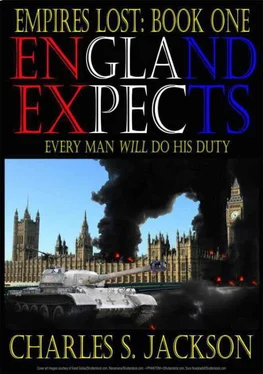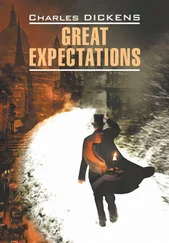“What’s that ?” Antoine asked, to Ritter’s great relief changing the subject once more and gaining enough courage to step forward to his sister’s side and point at the neck of the pilot’s tunic. He glanced down in reflex and then touched a hand to his throat.
“This…?” His fingers touched at the hint of coloured ribbon hidden there amid the folds of the white silk scarf he wore tucked into his collar; a ribbon comprising three narrow bars of red, white and black. He lifted it out from his collar and over his head, the ribbon dragging with it a hefty little medal that’d been hanging hidden against his chest. The sight of the dark medal drew gasps of surprise and delight from both children.
“This is called a Knight’s Cross,” Ritter continued. “Want to hold it?” He held the decoration out for the little boy, and Antoine extended both hands, cupped together and trembling as if the medal were so fragile it might disintegrate at his slightest touch. He turned the silver-edged, iron cross over in his hands as his sister stared on, captivated.
“What’s it for?” He asked eventually.
“You’re given it when people think you’ve done something brave,” the pilot replied, trying not to sound as overtly proud of the award as he truly felt: a Knight’s Cross wasn’t something handed out to just anyone , even if by chance that someone carried the same surname as the Ritterkreuz itself.
“What did you do?”
“Antoine, a little while ago a friend of mine was in a plane crash and was badly hurt. I landed my plane to pick him up and brought him back safely home again.”
The detail of the story was not quite so simple. While still a captain and fighting in Poland during the early stages of the war, Ritter had seen his commanding officer and good friend shot down behind enemy lines. The stricken Zerstörer had crash-landed in a large field, quite close to a troop of Polish cavalry, but Ritter could see that his CO was still at that stage alive and able to drag himself from the wreckage. Without a second thought, Ritter had turned his own aircraft back and expended what little ammunition he had left on the enemy horsemen, driving them off before landing under withering machine gun fire and picking up his injured commander.
His own aircraft was raked by fire several times and damaged while taking off, Ritter himself wounded during the action, but he managed to get them both back to base and make a passable wheels-up landing. Upon discharge from a field hospital two months later he found a promotion to major and the Knight’s Cross awaiting him.
“Antoine! Michelle!” The faint cry broke the spell of the moment and the boy dropping the medal back into Ritter’s hands as his mother’s voice drifted across the fields from the farmhouse. “ Oû êtes-vous, mes petits? ”
“We have to go,” Michelle muttered, a little unhappy at the prospect of leaving their new-found friend so soon. “Mama needs help with the firewood.”
“What about your father?” Ritter asked, sixth sense making him sorry he’d asked the instant the question had slipped out.
“He’s dead,” the girl blurted suddenly, the statement emotionless and dry as if it held no meaning. “The Nazis killed him.” Ritter was taken aback by the answer and the tone of it, and also by the unexpected waves of guilt that washed over him.
“I — I’m sorry…” he stammered lamely.
“ Michelle! Antoine! Oû êtes-vous maintenant? ” The call was much more insistent now.
“ Au revoir, m’sieur, ” Michelle said quickly, taking her brother by the hand and turning.
“…Goodbye…” Ritter began, but the children were already gone, running headlong away across the fields with their kite, its tail and line dragging out behind them across the grass.
Their mother met them close to the far edge of the field, on the same side as the farmhouse, and although she sent them scampering on toward the buildings behind her she didn’t immediately turn and follow. For a moment she stood and regarded Ritter with a curious gaze. Although there was the better part of a hundred metres between them, the pilot was somehow convinced there was no malice or mistrust in her expression…just curiosity.
He raised his hand by way of a silent greeting, self-consciously particular in that moment to not make any gesture that might be misconstrued as a ‘Heil Hitler’ . There was a moment’s pause before she acknowledged it with a simple nod and what seemed to be the impression of a smile, something that in a small way assuaged Ritter’s sudden and unexpected feelings of guilt over his being an invader in her country.
She was young, probably no more than thirty, and seemed — at that distance at least — to be quite pretty despite the poor standard of peasants’ clothing she wore. He thought of his own wife momentarily as the woman turned finally to follow her children, considering with no pleasure at all how Maria might feel were it her husband who were dead or posted as missing in action.
As he sat back down on the grass once more, he drew from his breast pocket a small booklet bound in black leather — his personal diary — along with an almost-new ball-point pen. As in many professional armed forces during wartime, the Oberkommando der Wehrmacht strictly forbade the keeping of diaries for security reasons. As with many professional soldiers in those same armed forces, Ritter kept one all the same. ZG26 was just reaching the end of a solid, gruelling month of combat operations, and it had been some time since Ritter had found a moment to think a little and write something…
Saturday
June 29, 1940
This will be the first entry I’ve made this week. Finally, the unit is being stood down from full combat operations. We’ll run the occasional routine patrol as Fliegerkorps instructs and carry out training and testing flights as necessary, but we’ll no longer be required for operations at gruppe or geschwader strength. This will be a welcome relief as we’re all tired after the fighting here and could do with some rest and a chance to maintain and overhaul our aircraft. In any case, the simple fact is that there’s no more real fighting to be done for the moment anyway. Not enough, at least, to require all the zerstörergeschwadern.
Paris is an open city now and I can’t blame the Frogs for doing that. I visited there eighteen months ago with Maria and it’s a truly beautiful place. It’d be insane for the French to make us fight for it in a war they can’t possibly win. The Tommis are almost finished too, I think. A few ragtag units remain here and there, but they’re slowly being mopped up and sent off to the stalags. They fought as well as could be expected considering the superiority of our leadership, our numbers and our firepower.
I wonder now, as many of us do, whether the Führer will really set his sights on our English ‘cousins’. Already, the rumours are spreading of the impending destruction of the RAF, something Herr Göring (and we) must first do if we’re to invade.
Should the Wehrmacht land in Great Britain, there can be no doubt the English will be beaten. They can’t have anything left after Dunkerque. The reports of the numbers of prisoners taken exceed three hundred thousand men…perhaps more than the stalag system can cope with at present when added to the prisoners we’ve already taken during the campaigns in Poland, France and the Low Countries.
I don’t know when Churchill’s so-called ‘Battle of Britain’ will begin in earnest, but there’s no doubt the Wehrmacht will be triumphant. Beside the loss of manpower, Britain had lost what the Abwehr tells us must amount to practically all her tanks, vehicles and guns…all captured on French beaches. Although they’d deny it now, there were many Wehrmacht generals who didn’t believe Germany was capable of conquering France. The Führer has proven them wrong.
Читать дальше












